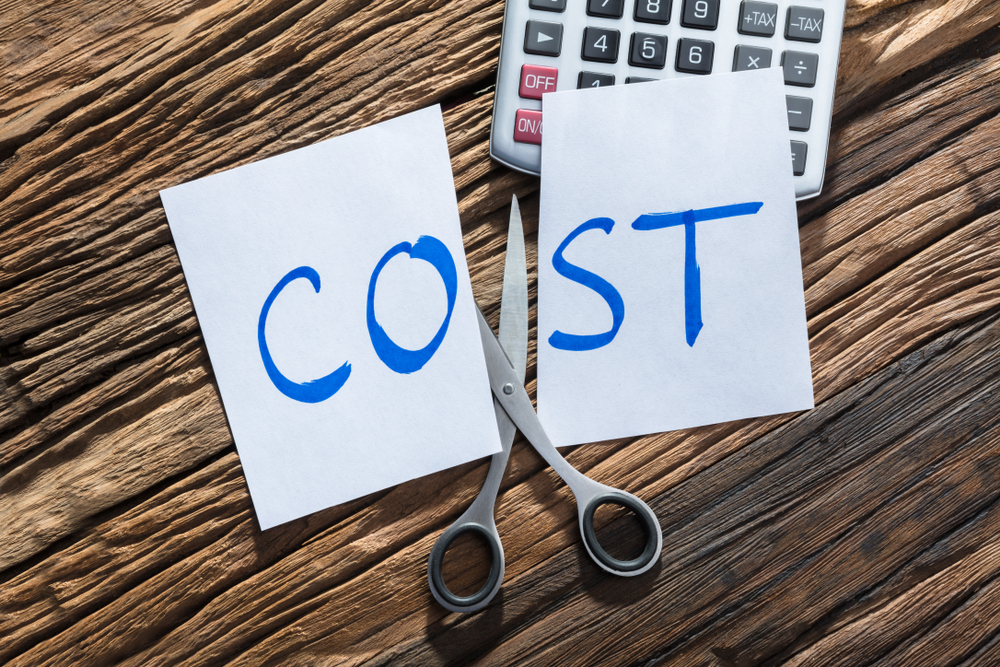The Plant Team is committed to helping you secure the future you dream of by making the most of your financial investments.
Our experts consider your priorities and goals, then creates a financial plan customized to your needs.

Services



Financial Planning
Retirement Planning
Investment Analysis
Blog Posts
Budgeting- 5 Simple Tips
For most people, budgeting is all about restricting spending so that there’s a nest egg for some far-off time in the future. Everything feels kind of intangible.
However, good budgeting is not about limiting yourself or thinking in terms of being hypothetical. It entails allocating your finances to things that really matter. You want to have money for the things that are important in your life while avoiding spending your money on unnecessary items.
Moreover, with life getting more expensive by the day, staying on top of your personal finances will help make sure that you have enough money to cover your bills now, while also letting you enjoy yourself and plan for the future.
When you get comfortable with budgeting, you will:
- Be able to plan for the future such that you will feel less anxious about what is to come.
- Have money available for the things you love or really care about.
- Be able to plan for your dream house, trip, etc.
- Stop wasting your time and money on superficial things you don’t care about.
- Gain more control of your life.
- If you have been looking for effective ways to budget your money better, we have you covered.

1.Come up with budgeting goals
For most of us, it’s hard to save money for the sake of saving it. We need to have a purpose in mind for saving, otherwise, budgeting will feel pointless. Some of the reasons you should consider setting budgeting goals include:
- Paying off any existing debt.
- Saving up for vacation.
- Saving for a house.
- Planning for retirement so that you won’t have to work forever.
Setting achievable goals will also help make budgeting a little easier. When you know exactly what you’re looking to accomplish, you will be more likely to accomplish it. You have probably heard of SMART goal setting. It’s a great way to set up your budget. It simply means that your goals should meet the following criteria:
- Specific: What exactly are you looking to save for?
- Measurable: How much will you be saving from every paycheck?
- Achievable: Will it even be possible to realistically achieve this goal or is it a dream?
- Realistic: Will you be able to reach this goal with your current expenses and income?
- Time-bound: When do you anticipate reaching this goal?
You should establish your priorities but be realistic enough such that you won’t end up giving up on budgeting in case an unexpected expense comes up.
2.Know your fixed expenses
Before you even start planning your budget, you want to first figure out your fixed expenses in full. This will ensure that you know how much money you have to pay out every month, no matter the changes in your income. Some of your fixed monthly expenses may include the following:
- Utilities
- Rent or mortgage
- Insurance
- Minimum credit card payments
- Loan payments (car loans, student loans, etc.)
- Desired investments, savings, or any additional debt payments
The last point is especially important. You have to calculate how much you need to invest, save, or use to pay your debt first. In case you’re setting aside some money but are still paying high interest on any lingering debt, or saving up for a holiday trip but have nothing saved up in case of emergency, then you’re not getting ahead with your finances.
When you’ve figured out your fixed expenses, you should then determine what is left. This is your “spending allowance”. You could use this amount on whatever makes your heart sing. To find out what’s left, you can do the following:
- Sum up all your fixed monthly expenses
- Calculate your total monthly take-home pay
- Minus the fixed expenses from the take-home pay
Keep in mind that, in case something big happens, such as an illness or an unexpected car repair bill, you might need to spend this money on these and have less for the fun stuff. This might suck but is also the reason you should always have an emergency fund.
3.Track your spending
To get better with budgeting, you want to understand exactly where your finances are going. Your fixed expenses will remain roughly the same each month. However, your variable expenses fluctuate, as they will largely depend on your spending habits, such as eating out instead of cooking, and so on.
This is why you need to track your spending so that you can see how much your variable expenses are costing you. For a full month, track how you spend your income without making modifications to your routine buying habits. Then, at the end of every month, assess where your money went.
When you track your spending for a full month, review the details to see where your cash mostly went and where you could cut back. Everyone has some financial leaks that can easily be filled when we take a closer look at our spending.
Don’t forget that you don’t have to cut back on everything. You just have to work on getting rid of the purchases that don’t help your overall goals or match the goals you set in the first step.
So, how do you go about tracking your spending?
Since everything has been digitized these days, it makes sense that budgeting can go digital too. Of course, you can still use an old-school spreadsheet, especially if you prefer the accountability of tracking everything manually. If you prefer something a little bit high-tech, you can’t go wrong with a good app.
Rather than assessing your spending manually to ensure you stay on track, using budgeting apps can help you monitor and analyze your spending better. In turn, this can make it easier for you to see where your money is going, and the changes you could make to improve your cash flow.
Embrace frugal living
One of the key steps when it comes to budgeting your money is embracing frugal living, to help you achieve your financial plans without limiting yourself too much. The following are some practical tips for frugal living:
- Prepare your meals at home
- Find ways to lower your grocery bill
- Lookout for promotional offers and deals
- Attend free events in your community to avoid breaking the bank on entertainment
- Consider cutting down any fixed expenses you don’t use that much
- Find low-fee or free banking options
- Avoid common money wasters like lottery tickets, late fees, impulse buying, or excess food that will just end up in the trash
Based on the spending habits that you tracked in the 3rd step, you should be able to see areas where a frugal attitude could be helpful so that you can stay focused on your financial goals.
5.Choose a budgeting method
The good thing about tracking the numbers and analyzing your spending habits is that it will make it easier for you to execute SMART goals. When you’re fully aware of the money that’s coming in or out, you will better understand some great ways to budget your income.
There are many budgeting methods out there, the most common of which is the 50/30/20 method. It works as follows:
- Use 50% of your income on fixed expenses like rent, groceries, utilities, or mortgage payments.
- Use 30% of your income on lifestyle choices like dining out, entertainment, and fun.
- Use 20% of your income on savings and debt payments.
Of course, your income may not exactly fit into this model. For instance, if 50% of your income goes to rent, it’ll be difficult to work on other things. However, this doesn’t mean giving up on your financial goals. There are many other budgeting options out there, including certain unusual methods, so go for what works best for you.
Final thoughts
The main takeaway of this post is: budgets without a purpose won’t work. We’ll simply have a hard time sticking to them if there are no tangible reasons to.
Instead, the best approach is to have a reason for budgeting. Whether you’re saving up for a one-off holiday trip or retirement, you should align your budget with your values.
You can then set up a spending plan after seeing how your income compares with your fixed expenses and financial goals. Get rid of anything that is not important or necessary for your goals.
Consider hiring a financial advisor to help you with your plans and goals. Contact us today.
8 Creative Ways to Save Money
Whether you’re looking to save it or make it, money is at the top of our minds. In case you’re looking for effective ways to build your savings or boost your emergency fund, try the following tips.

Cut cable
Cutting the money you spend on cable can save a lot. Switch to subscriptions like Hulu, Netflix, or Amazon Video. It’s likely that you are already using or have used at least one of these services anyway, so this won’t be an extra cost to you.
30-day No-spend Challenge
Try challenging yourself to avoid spending any money, except on necessities like rent, groceries, and utilities for the next month. Be sure to hold yourself responsible and encourage your spouse, partner, or roommate to join in on budgeting. If you have been shopping online a lot recently, trying this challenge could lead to significant savings.
Cook More to Save Money
You can save a considerable amount by swapping your lunches with sandwiches and leftovers. Enhance the savings by cooking dinner more often and cutting down on delivery and takeout. Experiment with new recipes or consider starting a fun cooking challenge with your roommates or partners. It could create a friendly competition with a tasty result in the end.
Lower the Rate of your Credit Card
Lessening your credit card rate is usually as easy as asking your card provider. Try negotiating a better rate by perhaps leveraging your high credit score or good payment history. In case your provider is not willing to lower your rate, consider exploring balance transfer options. Transferring your existing balance to another card could help you save on interest for a given period of time so that you can focus on paying your debt off or saving the extra cash.
Save a Small Amount for Every Paycheck
Even if money is currently tight, you can still find a few bucks to save. You could try putting aside $10 or $20 every time you get paid. This might seem small, but it is the first step towards saving for emergencies and any other possible expenses. You could make it easier by creating an automatic transfer at your bank from the checking account to your savings account at payday. Paying yourself first is a great way to ensure you always have cash.
Shop Smarter to Save Money
This is a no-brainer tip. Grocery bills can easily add up, especially if you have to buy more than usual because you’re spending more time at home. Generic brands and shopping discount stores can help you save big on your grocery bills. Instead of shopping at Whole Foods, consider grabbing your fruits and veggies elsewhere.
As a bonus tip, have a shopping list before going to the store. This will make sure that you’re only buying the things you need and keep impulse buying at bay.
Write Everything Down before you Buy
In case there’s something you have been looking to buy, write it down. Whether it’s a planner, a new pair of shoes, or a household item, just write it down and wait for a few days. This will help you decide if you really need the item or if it’s something that’s just nice to have. This trick will help you avoid impulse buying. If you’re still thinking about the item a week or two down the line, go ahead and make the purchase.
Pay Off Any Debt to Save Money
While it might cost you money now, paying off your debts will help you save money in the long run. For the short-term, it will save you on interest when you lower your principal amount, and when you pay off the debt completely, you will save the whole payment. If you want to save on your interest rate or monthly minimum payment immediately, try refinancing your student loans.
To speak with an expert and receive your personalized finance plan, contact us.
7 Smart Ideas for Your Finances
Ever wondered what are some of the best things you could do for your money and your finances future? The following is a list of some of the smartest things you could do for your finances.

1.Develop a Budget and Finances Plan
If you’re spending more than you’re earning, you will struggle to get ahead. In fact, it’s one way to know that you might be headed for trouble with your finances. One of the best ways of ensuring your earnings are more than your expenses is tracking your expenses for a month or so and then creating a budget based on that. This can be a very simple budget, so long as you have one.
2.Pay off any debt and try staying out of debt
One of the key things to do for your finances is to pay off all of your debt. To do this, focus on the most expensive debts you have. This could be loans and credit cards, which typically have the highest interest. When you’ve paid all of this debt, the next step is to focus on paying your mortgage.
For mortgages, it’s wise to consider halving your monthly payment so that you’re paying it bi-weekly. You can then pay extra once you can afford it. This could help to shave years off the mortgage and save you tens of thousands of dollars in interest.
3.Prepare for your future with savings goals
It’s vital to save money for your future. If you fail to set savings goals and work towards them steadily, you may have to rely on credit whenever things get tough. You might find yourself working through your retirement years to supplement your meager government pension. Entering retirement may also become impossible or delayed if you’re in debt as you won’t have enough money to make all of your payments.
Start saving money regularly, perhaps using a Tax-Free Savings Account (TFSA) or an RRSP, or both.
Figure out how much you will need to comfortably retire, plan for it, and then start saving. This money can be great for a rainy day fund, in case you suffer another unexpected financial setback or lose your job.
Ensure that you have ample insurance. Accidents can happen. 1 in 4 people get hurt while on the job. Natural disasters can also easily cause thousands of dollars in damages to your home. So, make sure that you have insurance for the lifestyle you lead and the place you live.
Write a will and choose who will get your assets and take care of your kids in case you pass on. This will let you choose who benefits from all of your hard work.
4.Start saving as early as possible – it’s never too late to start
With the magic of compound interest in mind, someone who starts saving early in their life for retirement, even when the rates are low, doesn’t need to save as much of their income as people who begin saving later in life.
When two people start saving for retirement, but one starts at 21 while the other starts at 31, the 21-year-old can save $100 every month until they’re 65 to accumulate $253,000 at their retirement, assuming a 6% rate of return. The one who starts at 31 will have to save about $190 a month to achieve the same amount by 65.
The second person would have to pay almost twice as much every month to make up for waiting 10 years to start saving. It’s never too late to start. However, the sooner you start saving money, the better.
5.Do your due diligence before making major purchases or financial decisions
Many people will generally do more research when buying a phone or a TV than they will when buying a home or making an investment. Ensure you are not one of them. Saving for retirement and buying a home are some of the biggest financial decisions that most people will have to make.
6.Just Sleep on It – Don’t make hasty finance decisions
There are no major purchases or financial decisions that have to be made on the spot. In fact, making hasty financial decisions or feeling forced to do so is one of the warning signs that the deal might not be as great as it seems.
All of the worthwhile investments will be there another day so long as you’re patient enough. It’s better to just wait and learn a lesson on the cheap than rush into something and get an expensive lesson.
Spending time when making big decisions, considering alternatives, and getting expert information and/or opinions will go a long way. They are wise things to do every time you’re making a financial decision.
7.Stay Married for Your Finances
Several studies have demonstrated that married people tend to earn higher incomes, live on 25% less compared to what comparable singles need on the same lifestyle, and have twice as many assets at retirement. So, statistically speaking, staying married is great for your personal finances.
Have any questions? Contact The Plant Team today.
